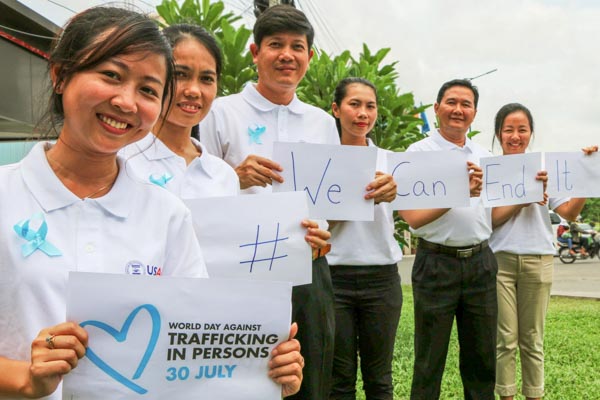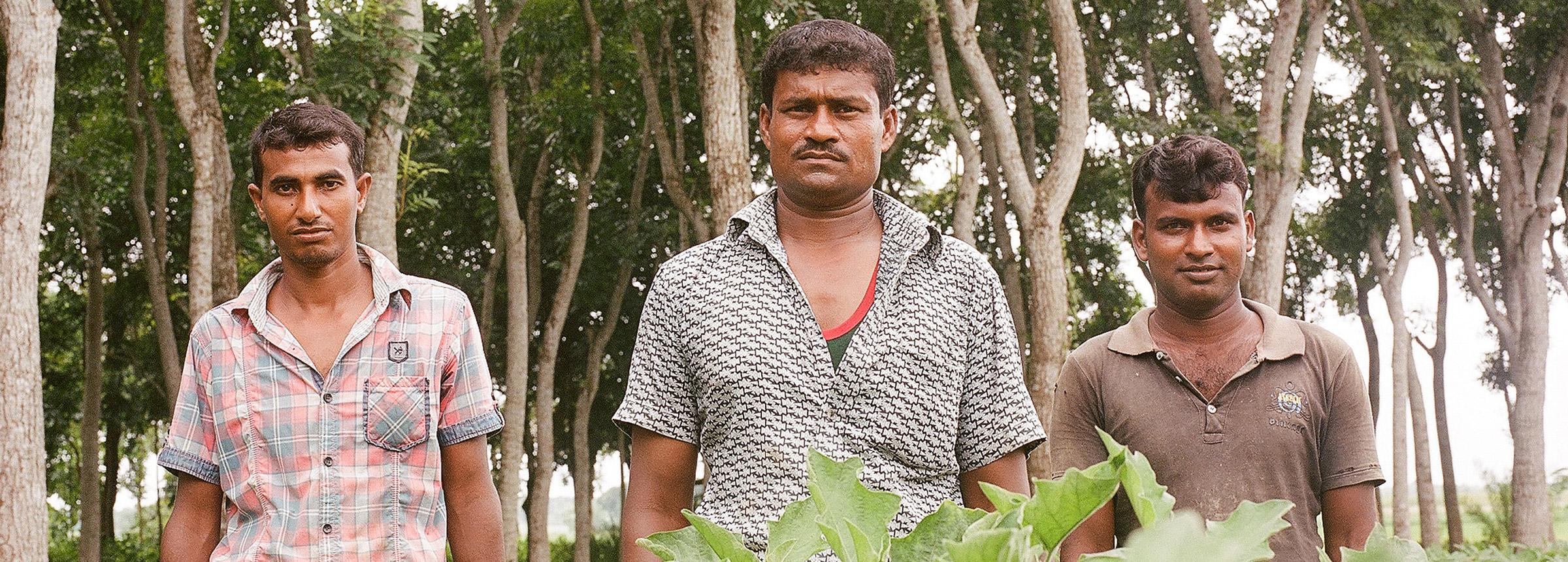
Four Ways to Address the Mental Health Needs of Trafficking Victims
By Olga DiPretoro and Dr. Tania Herbert
July 30 marks the third World Day against Human Trafficking, a day set aside to promote awareness and show solidarity with victims of this crime. Human trafficking takes place all over the world and includes forced and bonded labor, sexual exploitation, domestic servitude, organ harvesting, child soldiers and child pornography.
Numerous organizations around the world provide trafficking victims with safe housing, medical and legal services, psychosocial counseling and educational and livelihood support. But human trafficking has devastating and long-lasting effects on mental health, including post-traumatic stress disorder, anxiety, depression, feelings of guilt and shame, anger, and a damaged sense of social connectedness. And many gaps remain in diagnosis and treatment.
It is urgent that the international community invest in the assessment and development of mental health services for victims to ensure their sustainable recovery. Here are some lessons from the field that need to be considered moving forward.
- Make mental health treatment a central part of the recovery process
For people who are held in trafficking situations, the aim of the traffickers is twofold: to exploit victims for financial gain and to break their spirit through ill treatment so they’re powerless to confront the situation. This is not something that can be quickly or easily repaired, and skilled mental health care is a vital component of rebuilding the person’s shattered life.
All too frequently, victims want to return to their former lives believing that once they are reintegrated, mental health symptoms will subside. However, many find that the after-effects of trafficking become worse on their return.
A review of mental health services for trafficking victims in Bangladesh conducted through Winrock’s USAID-funded Bangladesh Counter Trafficking-in-Persons project found that both clients and counselors put great energies into the “what next” phase of readjustment — developing skills, engaging in education and training, and moving forward on legal cases. What was lacking was the ability to work through the pain, to manage it and integrate it into their life stories.
Due to lack of resources, counseling duties were often combined with other responsibilities, such as being a housemother, a teacher or trainer. This prevented counselors from establishing trust with their clients and limited their ability to help.
It’s crucial that we see mental health needs as central to trafficking victims’ recovery, that designated counselors care for victims, and that national governments, international bodies and donors invest in assessing and developing mental health services.
- Overcome gender stereotypes
There is a widely held gender stereotype that men are less emotionally affected by trauma than women. In fact, male trafficking victims often say that they don’t have emotional and psychological issues and that money and employment is all they need. Winrock’s mental health assessment of trafficking victims in Bangladesh found that there is little difference in the type or intensity of symptoms between male and female trafficking victims. In fact, there were variations on only two of the symptoms assessed, and both were counter to gender stereotypes: women expressed greater levels of anger, and men expressed a greater level of emotional response to reminders of the trafficking.
- Engage the broader community
Families and communities represent an important part of the mental health service structure. Supportive families and community members can accelerate recovery while less sensitive ones may re-traumatize victims.
When family life and living situations aren’t properly assessed before a survivor returns, a victim might end up in the same circumstances that led to the trafficking situation in the first place. The most dire example of this is when children have been sold by their own families and yet are returned to these same families without addressing the underlying problems. Family assessments and counseling are critical to identifying vulnerabilities and protecting victims from future risks.
- Build and support a network of qualified counselors
The review of mental health services for trafficking victims in Bangladesh suggests that counselors have very limited knowledge and skills in the assessment and management of mental health concerns. In addition, there are few structures in place that allow for effective and sustainable practice. The trauma of trafficking affects not only survivors but also those who bear witness to their pain.
The “2016 Trafficking in Persons Report” by the United States Department of State highlights “compassion fatigue” and “secondary traumatic stress” suffered by service providers caring for trafficking victims. The report emphasizes the importance of support and training to overcome these challenges. Qualified supervisors can guide counselors and help them develop self-care skills. Most importantly, they can buffer staff from the impact of working with extreme human rights abuses.
On this year’s World Day against Human Trafficking, we stand in solidarity with victims of human trafficking, and we thank and support the thousands of professionals who are helping them.
Related Projects

